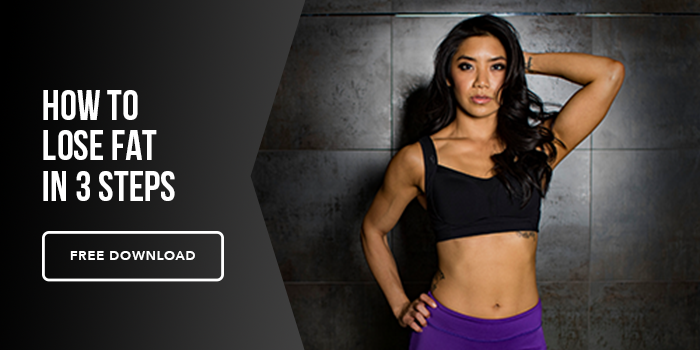If you spend any time in a modern gym or scroll fitness TikTok, you’ve probably seen it: people voluntarily dunking themselves in freezing barrels or sweating it out in tiny wooden rooms — all in the name of recovery.
Ice baths and saunas have both become cornerstones of the modern wellness routine. But do they actually work?
Ice Baths: Helpful, But At a Cost
First: ice baths are not new. Elite athletes have used them for decades to bounce back faster from brutal games and multi-day tournaments. And for good reason — cold exposure can help reduce soreness and inflammation in the short term.
How it works:
When you sit in near-freezing water, your blood vessels constrict. This reduces swelling and temporarily blunts inflammation. It also numbs pain and can help you feel fresher faster.
So, if you’re a pro athlete who needs to perform again tomorrow — like in back-to-back games or a tough training camp — an ice bath can absolutely help you recover quicker.
But here’s the catch for lifters:
Inflammation isn’t always the enemy. In fact, small amounts of it are part of how your muscles grow. That swelling signals your body to repair and rebuild stronger.
By repeatedly using ice baths right after lifting, you might blunt that process. Some research shows that regular post-training cold immersion can reduce hypertrophy over time. So, if you’re lifting mainly to build muscle you might want to save the ice for injuries or occasional recovery.
Other Perks of Ice Baths
Performance aside, many people swear by ice baths for mental reasons.
- Mental toughness: Getting into freezing water isn’t comfortable. It trains discipline, grit, and breath control.
- Mood boost: Cold plunges can spike adrenaline and dopamine, giving you a temporary boost in mood and alertness.
- Possible immune support: Early studies hint at small immune system benefits, but don’t expect to never catch a cold just because you dunk in icy water.
Bottom Line on Ice Baths
✅ Great for short-term recovery if you’re an athlete with back-to-back performances.
✅ Good for a mental wake-up or to challenge your comfort zone.
❌ Not ideal right after lifting if your main goal is muscle growth.
❌ Probably unnecessary for most recreational gym-goers who already have plenty of recovery time between sessions.
Saunas: More Than Just Sweat
Now, the other side of the heat-cold coin: saunas. Popularized in Nordic countries for centuries, sauna culture is having its own renaissance, with new studios popping up everywhere and people touting the health perks online.
What the research says:
Several well-known Swedish and Finnish studies have linked regular sauna use to reduced risk of cardiovascular disease, lower blood pressure, and even longer lifespan. Frequent sauna sessions are also associated with better heart health markers and lower risk of dementia.
Sounds magical, right?
Don’t Ignore the Healthy User Effect
Just like with “10K steps a day,” these studies can’t fully separate the benefit of sitting in a hot room from the habits of people who prioritize wellness in general.
People who carve out time to sauna multiple times a week also tend to eat well, move regularly, and have social connections. They’re not crushing fast food and bingeing TV for hours every night.
Plus, saunas are often a social ritual in Nordic cultures. You sit, you chat, you relax — all of which lower stress and build community. So, some of the “health benefit” might come from simply carving out time to unwind and connect.
So, Should You Use a Sauna?
Here’s the practical answer: it can’t hurt, and it probably helps.
✅ Heat exposure can increase blood flow, help muscles feel looser, and may aid recovery by relaxing tense areas after training.
✅ The relaxation effect is real — 15 minutes of forced stillness can calm your nervous system and lower stress.
✅ Many people sleep better afterward.
But here’s the trade-off: time. Studies praising sauna benefits often compare sauna use to doing nothing. Sure, sitting in a 180-degree box for 15 minutes is probably healthier than doom-scrolling your phone. But how does it stack up against other recovery investments?
For example:
- 15 minutes in a sauna vs. 15 minutes of brisk walking outdoors?
- … vs 15 minutes of mobility work?
- … vs 15 minutes of genuine, engaged conversation with a friend?
All of these have health and recovery perks too — so it’s about picking what fits your life and what you’ll actually stick with.
How to Use Saunas Smartly
If you enjoy them, use them! Just keep a few basics in mind:
- Hydrate well — you sweat out water and electrolytes fast.
- Keep sessions to 15–30 minutes. More isn’t always better.
- Don’t use the sauna as an excuse to skip sleep or good nutrition. It’s a tool, not a magic bullet.
Final Takeaway
Ice baths and saunas aren’t fads — they’re time-tested tools with real benefits in the right context.
✅ Ice baths: Use them if you need rapid recovery or want a mental edge. But skip daily cold plunges right after lifting if your main goal is hypertrophy.
✅ Saunas: Enjoy them for stress relief, cardiovascular perks, and a good sweat. Just weigh whether that time might sometimes be better spent lifting, moving, or connecting with people.
Neither is required for progress. But both can be great additions if you understand what they do — and what they don’t.
Your best bet? Keep your training solid, eat well, sleep well, and then sprinkle in the hot and cold stuff because you enjoy it — not because it’s a miracle fix.






